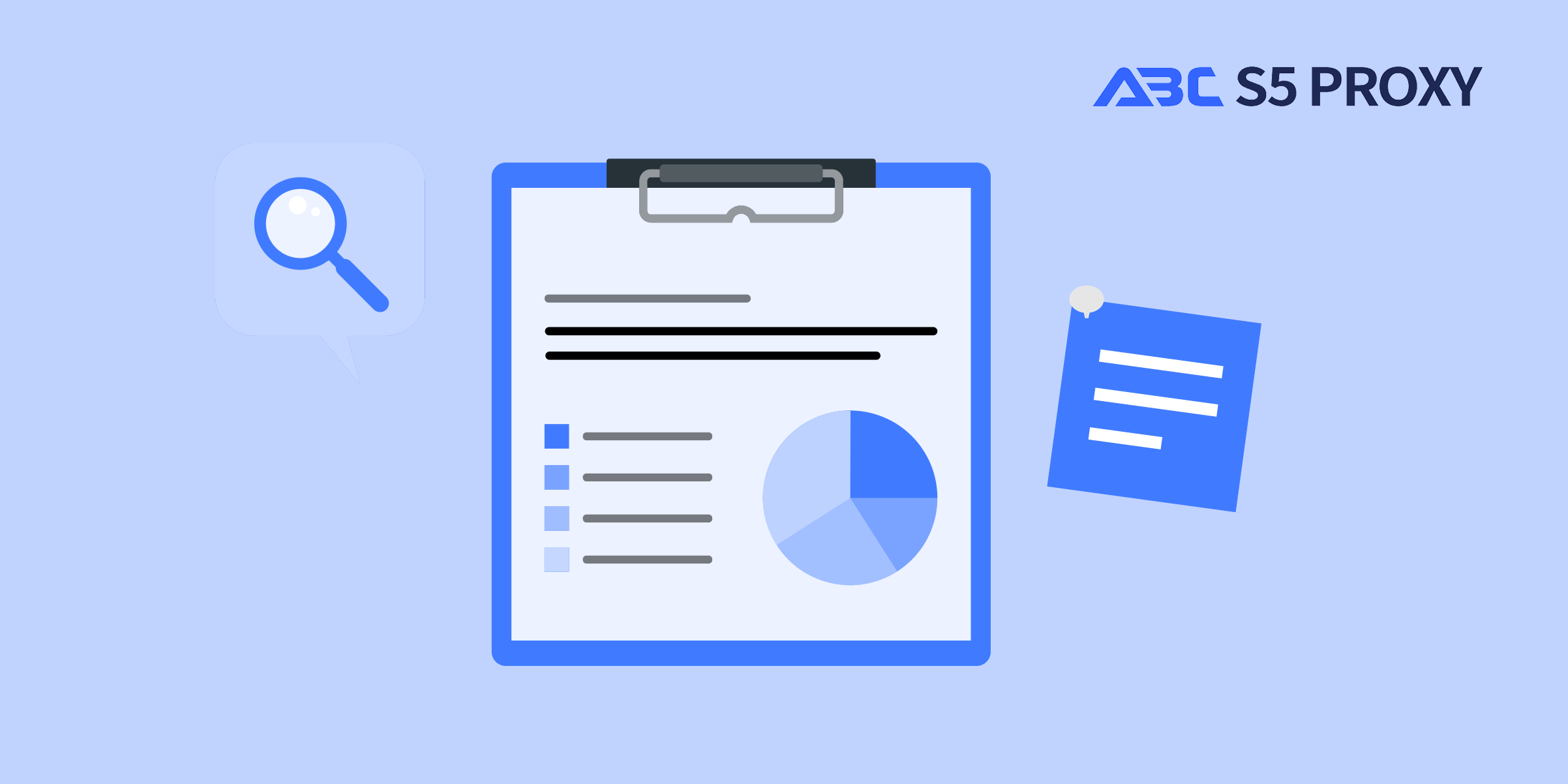Residential Proxies
Allowlisted 200M+ IPs from real ISP. Managed/obtained proxies via dashboard.

Proxies
Residential Proxies
Allowlisted 200M+ IPs from real ISP. Managed/obtained proxies via dashboard.
Residential (Socks5) Proxies
Over 200 million real IPs in 190+ locations,
Unlimited Residential Proxies
Use stable, fast, and furious 700K+ datacenter IPs worldwide.
Static Residential proxies
Long-lasting dedicated proxy, non-rotating residential proxy
Dedicated Datacenter Proxies
Use stable, fast, and furious 700K+ datacenter IPs worldwide.

Web Unblocker
View content as a real user with the help of ABC proxy's dynamic fingerprinting technology.
Proxies
API
Proxy list is generated through an API link and applied to compatible programs after whitelist IP authorization
User+Pass Auth
Create credential freely and use rotating proxies on any device or software without allowlisting IP
Proxy Manager
Manage all proxies using APM interface

Proxies
Residential Proxies
Allowlisted 200M+ IPs from real ISP. Managed/obtained proxies via dashboard.
Starts from
$0.77/ GB
Residential (Socks5) Proxies
Over 200 million real IPs in 190+ locations,
Starts from
$0.045/ IP
Unlimited Residential Proxies
Use stable, fast, and furious 700K+ datacenter IPs worldwide.
Starts from
$79/ Day
Rotating ISP Proxies
ABCProxy's Rotating ISP Proxies guarantee long session time.
Starts from
$0.77/ GB
Static Residential proxies
Long-lasting dedicated proxy, non-rotating residential proxy
Starts from
$5/MONTH
Dedicated Datacenter Proxies
Use stable, fast, and furious 700K+ datacenter IPs worldwide.
Starts from
$4.5/MONTH
Knowledge Base
English
繁體中文
Русский
Indonesia
Português
Español
بالعربية

Title: The Role of Public Web Proxies in Internet Security and Privacy
In today's digital age, internet security and privacy have become increasingly important concerns for individuals, businesses, and organizations. One tool that plays a significant role in enhancing online security and privacy is the public web proxy. Public web proxies act as intermediaries between users and the internet, allowing users to access websites anonymously and securely. In this blog post, we will explore the benefits of public web proxies, their role in enhancing internet security and privacy, and the best practices for using them effectively.
Public web proxies serve as a gateway between users and the internet by forwarding their web requests to the destination website on their behalf. By doing so, public web proxies can hide users' IP addresses and location information, making it difficult for websites to track their online activities. This anonymous browsing feature is particularly beneficial for users who wish to protect their privacy and avoid being targeted by advertisers or malicious attackers.
Moreover, public web proxies can also help users bypass internet censorship and access restricted content. In countries where the government imposes strict internet controls, public web proxies can provide users with a way to circumvent these restrictions and freely access the information they need. This freedom of access is essential for promoting online freedom of speech and democracy in repressive regimes.
Another key benefit of using public web proxies is their ability to enhance internet security. By acting as a middleman between users and websites, public web proxies can filter out malicious content, such as malware, phishing sites, and other online threats. This added layer of security can help prevent users from falling victim to cyber attacks and keep their devices safe from potential harm.
However, while public web proxies offer various benefits for internet security and privacy, it is essential to use them cautiously and be aware of their limitations. One common risk associated with public web proxies is the potential for data interception and logging. Some public web proxies may capture users' sensitive information, such as login credentials, credit card details, or personal data, putting their privacy at risk. Therefore, it is crucial to choose reputable public web proxies that have a clear privacy policy and do not log users' activities.
Additionally, public web proxies may also slow down internet connection speeds due to the added latency introduced by the proxy server. Users may experience delays in accessing websites or streaming content, especially during peak usage times. To mitigate this issue, users can select public web proxies that offer high-speed connections and have multiple server locations to choose from.
In conclusion, public web proxies play a vital role in enhancing internet security and privacy by enabling anonymous browsing, bypassing censorship, and filtering out malicious content. By understanding the benefits and risks associated with public web proxies and following best practices for their usage, users can safeguard their online activities and enjoy a safer and more secure internet experience. As we strive to protect our digital identities and privacy in an increasingly interconnected world, public web proxies serve as valuable tools in our arsenal against cyber threats.
Featured Posts
Popular Products
Residential Proxies
Allowlisted 200M+ IPs from real ISP. Managed/obtained proxies via dashboard.
Residential (Socks5) Proxies
Over 200 million real IPs in 190+ locations,
Unlimited Residential Proxies
Use stable, fast, and furious 700K+ datacenter IPs worldwide.
Rotating ISP Proxies
ABCProxy's Rotating ISP Proxies guarantee long session time.
Residential (Socks5) Proxies
Long-lasting dedicated proxy, non-rotating residential proxy
Dedicated Datacenter Proxies
Use stable, fast, and furious 700K+ datacenter IPs worldwide.
Web Unblocker
View content as a real user with the help of ABC proxy's dynamic fingerprinting technology.
Related articles

How does the ChatGPT RAG example improve information processing capabilities
Analyze the actual application scenarios of ChatGPT combined with Retrieval Augmented Generation (RAG) technology, explore its value in knowledge integration and data acquisition, and understand how abcproxy provides underlying support for the RAG system.

How does Best Socks5 Proxy ensure anonymous network needs
This article explores the core value of Socks5 proxy in anonymous networks and analyzes how abcproxy high anonymous proxy meets diverse security needs.

How to remove website access restrictions
This article analyzes the technical principles and mainstream solutions of website access restrictions, and explores the core role of proxy IP in bypassing regional blocking and anti-crawling mechanisms. abcproxy provides multiple types of proxy IP services to help you break through network restrictions efficiently.